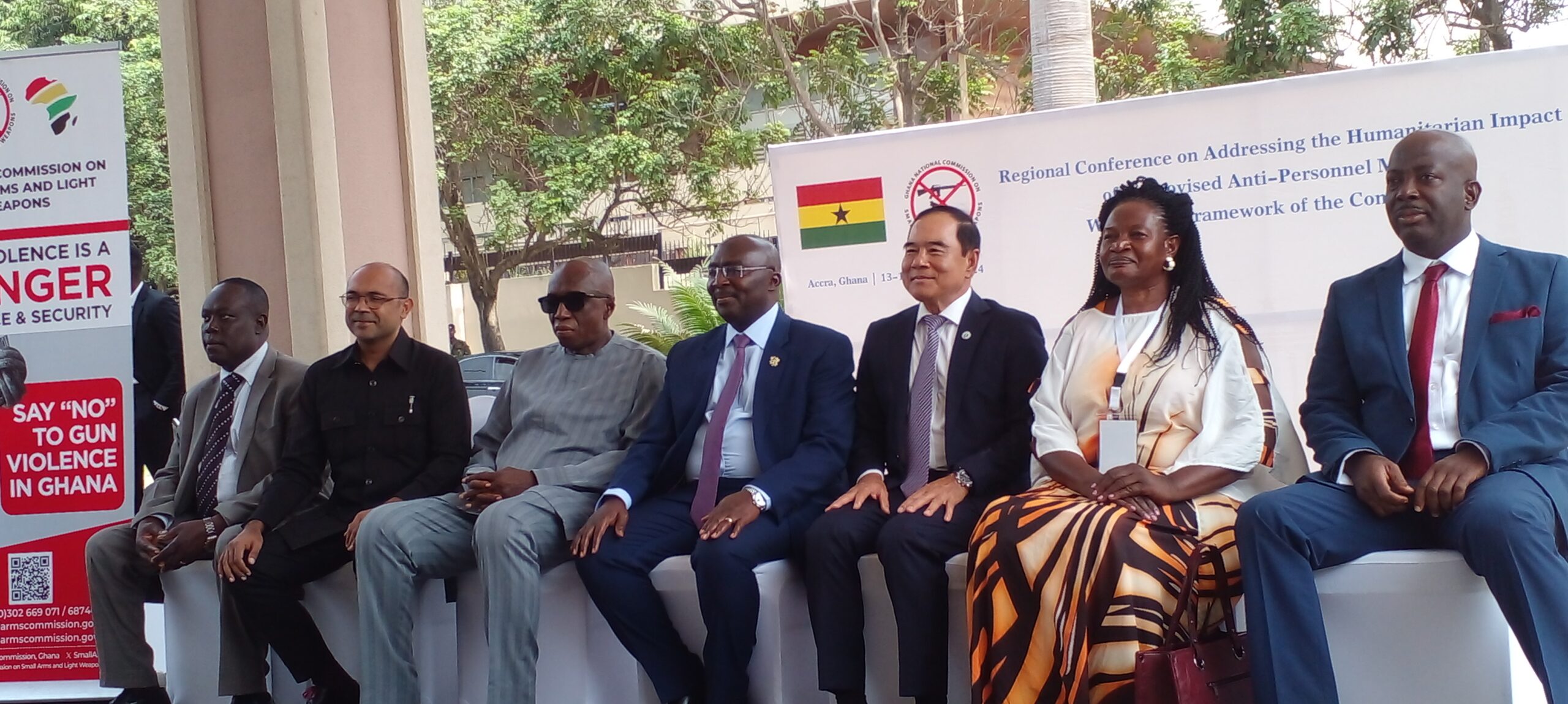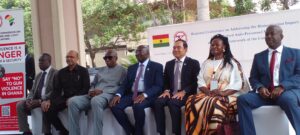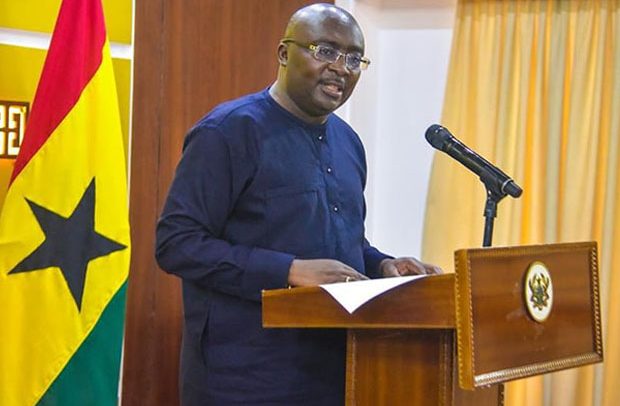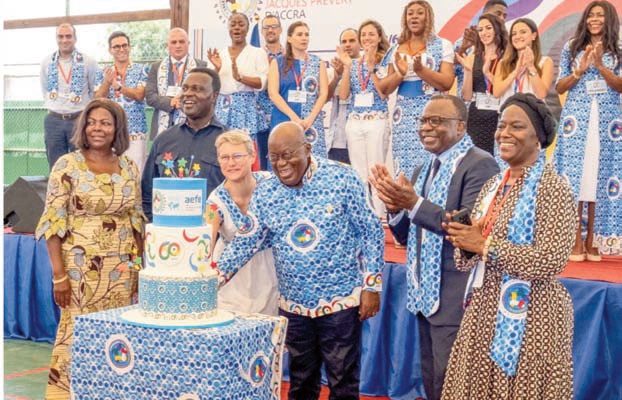

 Vice President Mahamudu Bawumia has called for concerted action by nations around the world, regional organisations and key stakeholders to address the humanitarian impact of improvised anti-personnel mines.
Vice President Mahamudu Bawumia has called for concerted action by nations around the world, regional organisations and key stakeholders to address the humanitarian impact of improvised anti-personnel mines.
The scourge in landmines and explosive remnants of war had had devastating effects on humanity, he said, and urged all states that were signatories to the Anti-Personnel Mine Convention to strive towards its ratification.
Vice President Bawumia reiterated government’s unflinching support and commitment to promoting a world free from the scourge of landmines and explosive remnants of war.
The Vice President made the call at the opening of a three-day “Regional Conference on Addressing the Humanitarian Impact of Improvised Anti-Personnel Mines within the Framework of the Convention” in Accra on Tuesday.
He said it was imperative to confront the menace with unwavering determination and collective efforts.
“We remain steadfast in our commitment to promoting a world free from the scourge of landmines and explosive remnants of war,” Dr Bawumia said.
The conference serves as a platform to dialogue, collaborate and exchange best practices and proffer innovative solutions to address the challenges posed by improvised anti-personnel mines globally.
It is being organised by the Government of Ghana, through the National Commission on Small Arms and Light Weapons, the European Union and the Anti-Personnel Mine Convention Implementation Support Unit.
There were more than 100 delegates from the 15 Member States of ECOWAS, the Sahel Region and the European Union.
Vice President Bawumia called for united efforts by all stakeholders under a common goal to confront and mitigate the devastating humanitarian consequences caused by improvised anti-personnel mines.
“This conference serves as a vital platform for dialogue, collaboration, and action. We come together with a shared commitment to safeguarding human lives, protecting communities, and advancing peace and stability in our regions.”
“It is imperative that we confront the menace of improvised anti-personnel mines with unwavering determination and collective effort.”
The Convention on the prohibition of the use, stockpiling, production and transfer of anti-personnel mines and on their destruction, also known as the “Mine Ban Treaty”, seeks an end to the suffering and casualties caused by such mines through the pursuit of four core goals.
The goals include ensuring universal adherence, clearing mined areas, destroying stockpiled mines, and assisting the victims.
It is also intended to achieve national legislation, cooperation and assistance, transparency and exchange of information, facilitating compliance, and implementation support.
The Convention has 164 State Parties including Ghana.
According to Minesweepers whose work is to detonate naval mines, it is estimated that about 110 million landmines are scattered across the globe.
The individual cost for removing mines ranged from three to 30 dollars, while the expense of their removal varies significantly, ranging from $300 to $1000 per mine.
Considering those figures, the report by Minesweepers said the total expenditure for clearing all existing mines was projected to range from a substantial $50 billion to $100 billion.
Meanwhile, the Landmine Monitor (2022) report indicates that States Parties to the Mine Ban Treaty had destroyed more than 55 million stockpiled antipersonnel mines.
That underscored the significant financial commitment made by states and international organizations worldwide towards the effective implementation of the Convention.
The Landmine Monitor also reported that in 2022, at least 4,710 individuals were killed or injured by landmines or Explosive Remnants of War (ERWs) in 49 states.
Among them, 1,661 lost their lives, 3,015 sustained injuries, while the status of 34 remains unknown.
It said civilian casualties constituted 85 per cent of the total, with nearly half of the civilian victims being children (49 per cent) amounting to a total of 1,071.
As of October 2023, it was also reported by the Land Mine Monitor that approximately 60 countries and other areas worldwide were grappling with the detrimental presence of anti-personnel landmines contaminating their territories.
Among those could be found, at least, 24 States Parties either believed or confirmed to be afflicted with improvised mine contamination.
Those nations included some African states such as Burkina Faso, Cameroon, Chad, Mali, Nigeria, and Togo.
The report said the presence of improvised mines exacerbated the already grave humanitarian and security challenges faced by those nations, necessitating urgent and concerted efforts towards effective mine clearance and risk mitigation strategies.
The use of improvised anti-personnel mines poses a grave threat to civilians, particularly in conflict-affected regions.
Vice President Bawumia noted that those insidious weapons indiscriminately maimed and killed innocent men, women, and children, inflicting lasting physical and psychological harm.
“They disrupt livelihoods, impede socio-economic development, and hinder efforts to achieving sustainable peace and security,” he said.
“Ghana recognises the urgent need for concerted action to address the humanitarian impact of improvised anti-personnel mines.”
“We remain steadfast in our commitment to promoting a world free from the scourge of landmines and explosive remnants of war.”
“Compliance with these legal instruments is essential to preventing further human suffering and fostering a safer, more secure world for all.
“I, therefore, urge all states that are not parties to the Convention to strive towards the ratification of the Convention.”
Source: GNA
The post Ghana re-affirms commitment to promoting a world free of landmines appeared first on Ghana Business News.
Read Full Story



















Facebook
Twitter
Pinterest
Instagram
Google+
YouTube
LinkedIn
RSS